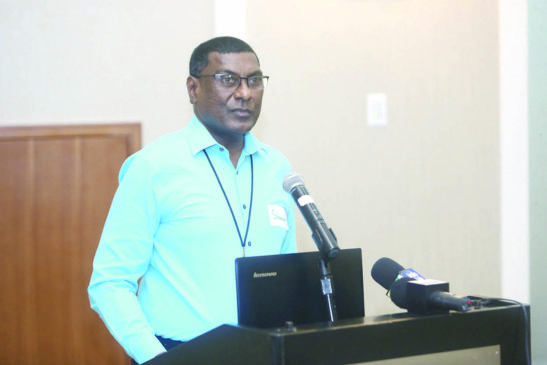The latest information provided by the Pan American Health Organisation/World Health Organisation (PAHO/WHO) suggests that the challenges of mental health in Guyana consume more resources than HIV/AIDS, malaria and tuberculosis (TB) combined. This is an idea of the extent of the problem.
While mental health issues have been dealt with from a reactionary standpoint over the years, Guyana’s Chief Medical officer (CMO), Dr Shamdeo Persaud, in an exclusive interview with Guyana Times International on Monday stated that a more holistic approach is needed to tackle mental health, which has become an unpalatable pill to swallow.

“What we have started to do is started to develop the Primary Healthcare Integrated Mental Health Programme. So our efforts, with support from PAHO, have been to implement training on the mental health treatment gap. It is a module that PAHO developed that allows us to train the primary care doctors who are general practitioners on measures for mental health intervention.”
He explained that the Public Health Ministry is aggressively pursuing tackling the issue of mental health challenges in Guyana and, therefore, the focus is no longer on only deploying social workers and psychologists in every region by 2020 to tackle the growing problem of mental disorders. The Ministry now has a much broader goal.
“So it is just not psychiatry now, it is mental health and the Mental Health Unit of the Ministry has about nine modules that are being done with regard to training these primary care doctors throughout the country. So in addition to the gatekeeper programme, which was an intermediate programme where we were training community members, in this instance, we are training health professionals, doctors, nurses and other categories of health workers to establish community-based services. So that is our main thrust at this point in time,” the CMO further stated.
Recruitment of psychologists
Presently, there are some voluntary groups which assist the Public Health Ministry in relation to providing much needed services in addressing mental health issues, however, there are now more psychologists available to help Government-run health facilities in identifying and treating mental disorders.
“We have been working with those voluntary groups, and in addition to that, we also now actively recruit psychologists at the Ministry. So we have nine psychologists who are working with us. Also, several institutions have also started to employ psychologists, including the Georgetown Public Hospital Corporation (GPHC) and they are providing counselling support along with the social workers.”
Dr Persaud elaborated that all of the above is in keeping with consolidating the Primary Healthcare Integrated Mental Health Programme towards the direction of “service delivery”.
Community capacity development
According to the CMO, focus will still be placed on the capacity development of communities to tackle the growing problem of mental health issues and this includes the Gatekeepers’ Programme that armed communities with lay counsellors who took proactive action to not only prevent the act of suicide but also addressed various forms of abuse.
“We will revisit again the Gatekeepers’ Programme and some other community-based efforts but what we want to do is build capacity in the communities among the health professionals first. This year, by the end of this year, we will make a decision on how we go forward with any additional supporting mechanisms at the community level.
We do have some support groups and we still have the PEER Education Programme for drug demand reduction and those two still are running – the general support groups and the PEER educators programme.”
The PEER Education Programme was an initiative adopted some years ago that saw youths across Guyana being trained as peer educators to help tackle the social ills that were/are affecting various communities.
Additionally, the Suicide Implementation Plan also caters for a number of partnerships to be developed with stakeholders to raise awareness as a means of reducing suicides and suicidal attempts while simultaneously strengthening the supporting network for persons who are in need of counselling services.



